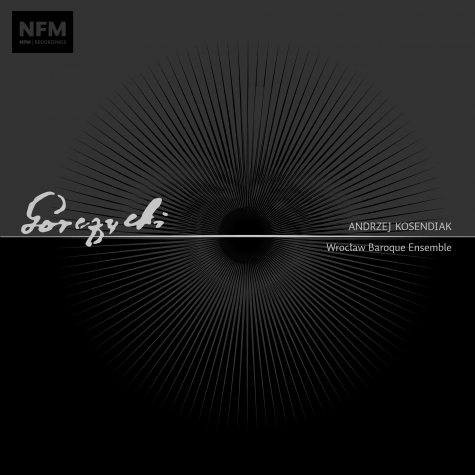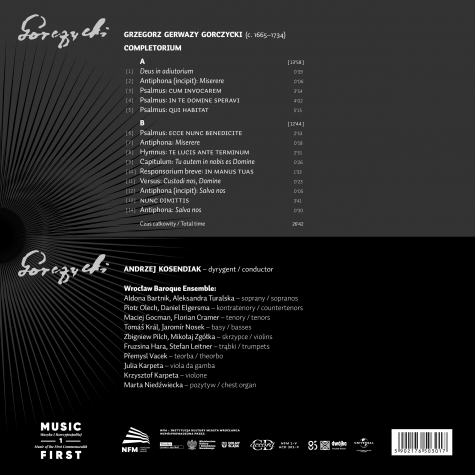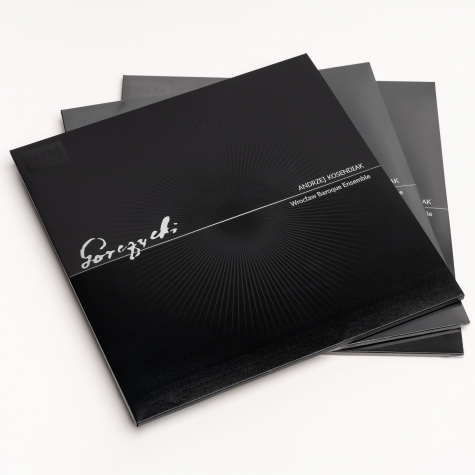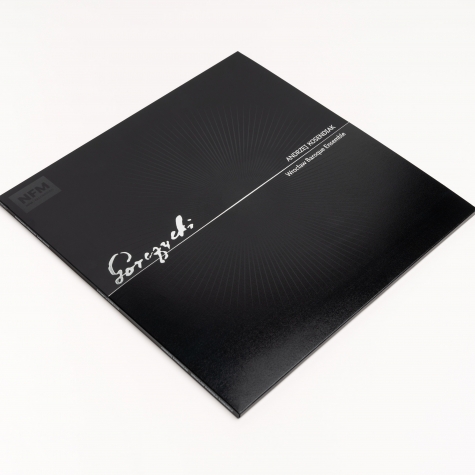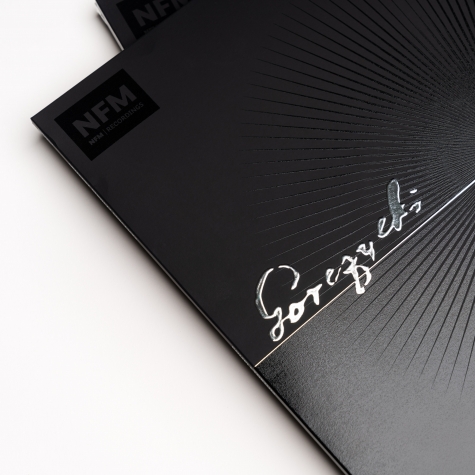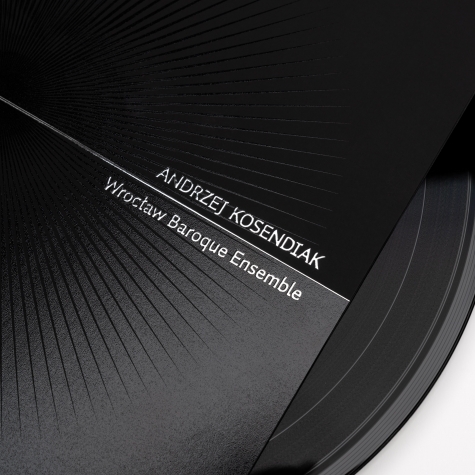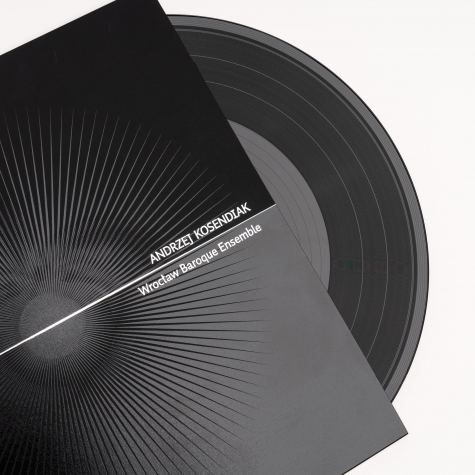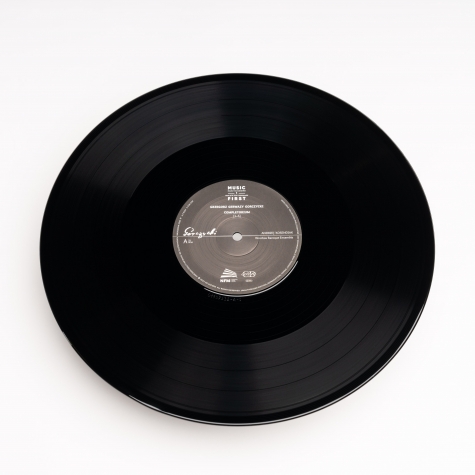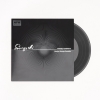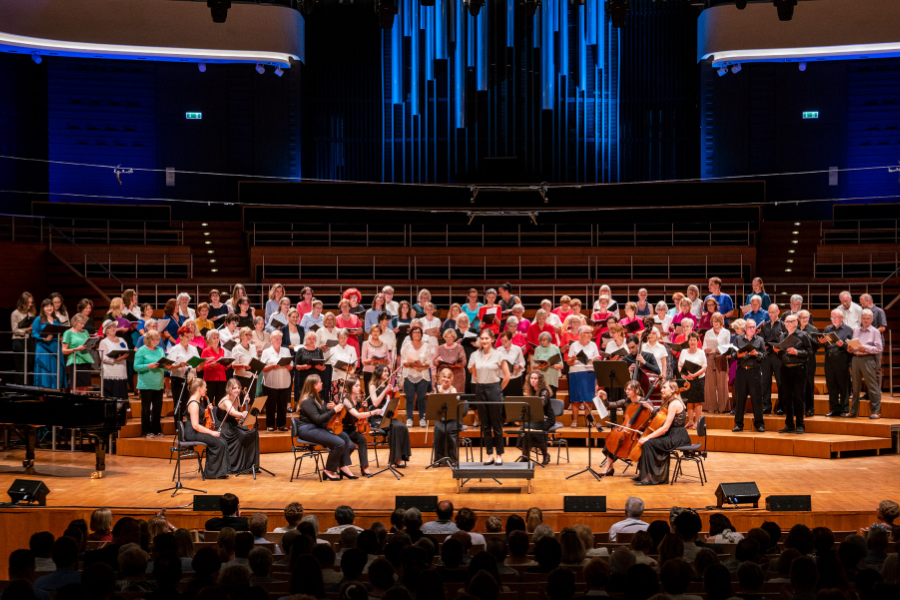Grzegorz Gerwazy Gorczycki – Completorium
The first vinyl album of the National Forum of Music. The album, recorded by the Wrocław Baroque Ensemble under the direction of Andrzej Kosendiak, includes Grzegorz Gerwazy Gorczycki's Completorium, a musical arrangement of selected parts of Compline - the last service of the Liturgy of the Hours. The work was supplemented with antiphons and fragments from the Gregorian monody appropriate for the celebration of the liturgy of the hours. The publication is complemented by a musicological commentary prepared by Dr. Maciej Jochymczyk in cooperation with Prof Jakub Kubieniec. The vinyl album Grzegorz Gerwazy Gorczycki – Completorium is another release released as part of the Music First series prepared by the National Forum of Music and CD Accord since 2012. Music of the First Polish Republic, which presents the work of masters of the Polish Renaissance and Baroque under the direction of Andrzej Kosendiak.
Album release date: 2022
Publisher: National Forum of Music, CD Accord
Performers:
Andrzej Kosendiak – conductor
Wrocław Baroque Ensemble
Completorium is one of the most extensive and well-known works by Gorczycki. It is a musical setting of selected parts of the compline, i.e. the last service of the canonical hours. (…)
In the Roman Catholic tradition, the end-of-day prayer appeared no later than in the early Middle Ages, and has not changed significantly since then, until the reform of the breviary in the 1970s.
Contrary to other canonical hours, it consisted mainly of permanent elements, the same that were included in Gorczycki’s settings: four psalms containing allusions to the end of the day and rest (Ps 4 Cum invocarem, Ps 31[30] In Te Domine speravi, Ps 91[90] Qui habitat, Ps 134[133] Ecce nunc benedicite), a hymn (Te lucis ante terminum), a responsorium breve (In manus tuas) and the canticle of Simeon (Nunc dimittis, Lk 2:29–32) with an eschatological message – at the end of the day one must be ready (like the saintly old man from Jerusalem) to end the earthly journey. The whole was closed with one of the four Marian antiphons, selected depending on the period of the liturgical year. (…)
In Gorczycki’s time, the liturgy of the hours was celebrated in the cathedral according to the rite of the Roman curia, which at the end of the 16th century replaced local Kraków customs. The post-Tridentine Roman Rite envisaged singing one antiphon to all the psalms (Miserere mihi, Domine during the year or Alleluia during the Paschal time) and a fixed antiphon to the canticle of Simeon, but in practice only the beginning of the antiphon was chanted before the psalms and the canticle, followed by the whole antiphon. This album uses records from the pre-Tridentine Kraków antiphonaries (…)
In addition to the antiphons mentioned before, in accordance with the order of the service, the performers also added Gregorian chant for: an introductory verse (Deus in adiutorium, Ps 70[69], 2), a capitulum, i.e. a short reading (Tu autem in nobis es Domine), a versus ending the responsory (Custodi nos, Domine) and the second stanza of the hymn Te lucis ante terminum, skipped in the work of the Wawel kapellmeister. It should be noted that some guidelines how to link a polyphonic setting with a Gregorian monody can be found in the only surviving manuscript of Completorium by Gorczycki, discovered in 1961 in the collection of the parish church in Raków Opatowski (…)
Gorczycki’s Completorium was composed for a line-up very often used in Central European religious music of that time: a four-part vocal ensemble, two violins, two natural trumpets (clarino) and an organ, the part of which was notated, according to a convention of that time, in the form of a figured bass. A pair of trumpets only appear in the first and last movements, and one of them plays in the fourth psalm (Ecce nunc benedicite); although their parts are marked in the source as non-obligatory (ad libitum) and at times they double the violins, the presence of wind instruments is very important for the colour of the composition.
Maciej Jochymczyk
